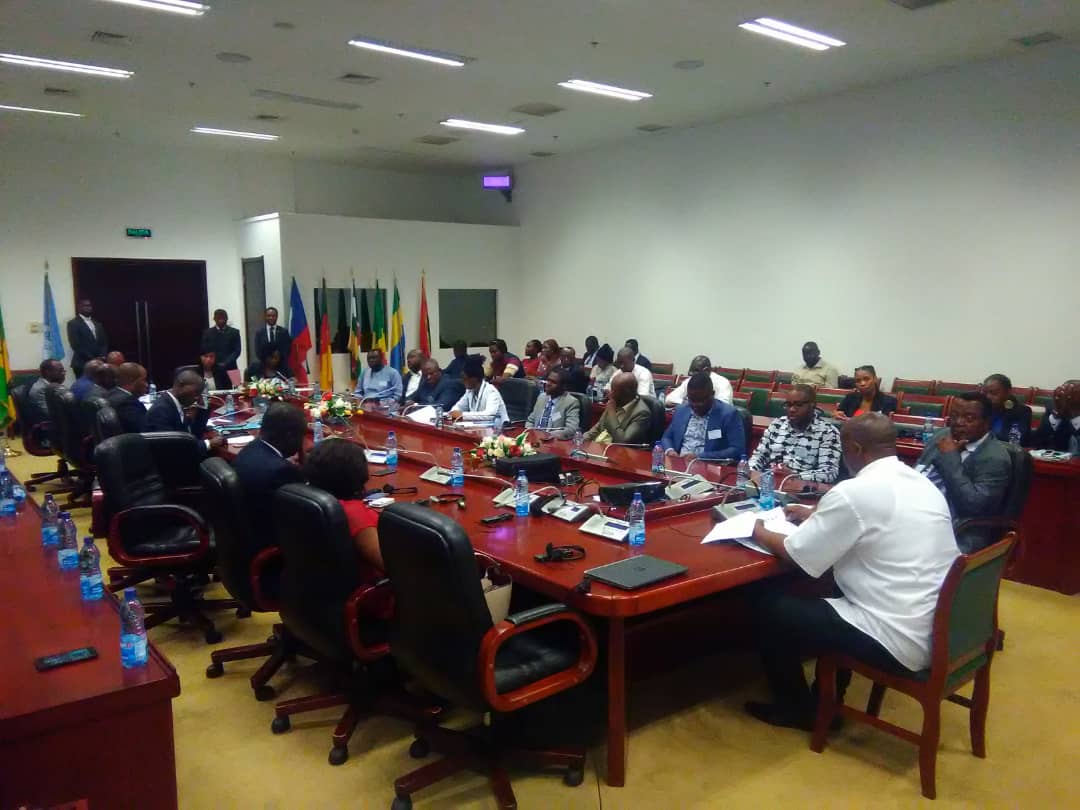 From September 25 to 27, 2019, the Sub-Regional Legal Assistance Workshop for States Parties to the Kinshasa Convention on Small Arms and Light Weapons (SALW) was held at the Sipopo International Conference Center in Malabo, Republic of Equatorial Guinea.
From September 25 to 27, 2019, the Sub-Regional Legal Assistance Workshop for States Parties to the Kinshasa Convention on Small Arms and Light Weapons (SALW) was held at the Sipopo International Conference Center in Malabo, Republic of Equatorial Guinea.
This workshop, organized with the support of the Republic of Equatorial Guinea, is an integral part of the project "Supporting African States in the framework of the African Union's vision of "Silencing the Guns of Africa by 2020 ": Capacity Building of Central African States ", jointly implemented by the Economic Community of Central African States (ECCAS), the United Nations Regional Center for Peace and Disarmament in Africa (UNREC) and the Office of the United Nations United Nations Regional Office for Central Africa (UNOCA).
The participants for the workshop included delegates from the ECCAS Member States namely; Angola, Burundi, Cameroon, Republic of the Congo, Gabon, Equatorial Guinea, Central African Republic, Democratic Republic of the Congo, Rwanda, Sao Tome and Principe and Chad, international experts in the field of SALW and representatives of UN specialized agencies and sub-regional organizations (list of participants in annex).
The workshop was opened by the Secretary of State for Foreign Affairs of the Republic of Equatorial Guinea, Her Excellency Maria Angeles MIAGA, in the presence of:
- Mr Guy-Pierre GARCIA, Deputy Secretary General, Head of Department of Human Integration, Peace, Security and Stability of the Economic Community of Central African States (ECCAS);
- Mrs. Marilyn, Epse Tayim Ngum Fru, Senior Political Affairs Officer, Deputy Head of Political Affairs of the United Nations Office for Central Africa (UNOCA);
- Mr. Mady BIAYE, Resident Coordinator ai of the United Nations System in Equatorial Guinea;
- Mr. Anselme Nahmtante YABOURI, Director of the United Nations Regional Office for Peace and Disarmament in Africa (UNREC);
- Mr. Leonardo Lara Villarroel, Crime prevention and criminal justice officer at the United Nations Office for Drugs and Crime (UNODC);
- Members of the diplomatic corps accredited to the Republic of Equatorial Guinea; and
-The representatives of the United Nations agencies in the Republic of Equatorial Guinea.
After having welcomed the legislative and regulatory measures already taken by the Member States and the General Secretariat of ECCAS, the delegates noted challenges in the implementation of the Kinshasa Convention on Small Arms and Light Weapons (SALW) and made the following recommendations as follows:
To the General Secretariat of ECCAS
- Establish a small arms and light weapons control unit within ECCAS;
- Ensure that the annual meetings of National Commissions on the Proliferation of Small Arms and Light Weapons become effective;
- Render operational the ECCAS Sub-Secretariat on the Kinshasa Convention on Small Arms and Light Weapons;
- Promote research and training on small arms and light weapons through the Secretariat of the Kinshasa Convention;
- Organize and coordinate quality and certified training on the safe management of weapons and ammunitions stocks through the Secretariat of the Kinshasa Convention;
- Identify and reinvigorate civil society organization networks working on the issue of small arms and light weapons in Central Africa, in order to support the activities of national commissions to combat the proliferation of small arms and light weapons;
- Continue advocacy with Member States for the full ratification of the Kinshasa Convention;
- Intensify advocacy with Member States for the implementation of the Kinshasa Convention.
To States Parties
Update the legal instruments for the control of small arms and light weapons;
- Harmonize national legal instruments on small arms and light weapons with the Kinshasa Convention;
- Realize the Trust Fund to ensure the functioning of the Secretariat of the Kinshasa Convention;
- Integrate youth and women's organizations into national commissions to combat the proliferation of small arms and light weapons;
- Consider the gender dimension in the preparation of national reports addressed to the General Secretariat of ECCAS (Kinshasa Convention) and the United Nations (UN Program of Action).
To partners working in the field of SALW: ECCAS / UNOCA / UNREC
- Support National Commissions in the implementation of the Kinshasa Convention on Small Arms and Light Weapons;
- Organize a sub-regional workshop to present and validate the implementation guide of the Kinshasa Convention on Small Arms and Light Weapons;
- Organize a joint ECCAS / UNOCA / UNREC meeting to prepare the next phase of the project;
- Develop, as an annex to a joint program, a resource mobilization strategy paper;
-Ensure the continuation of ongoing activities of the project and possibly request an extension without cost for their finalization.
Done at Malabo on September 27, 2019
 Who we are
Who we are  Newsletter/UNREC Focus
Newsletter/UNREC Focus  Contact Us
Contact Us  Overview
Overview  Specific Projects
Specific Projects  Calendar of Events
Calendar of Events  Useful Links
Useful Links  Employment
Employment  Rosters of Experts
Rosters of Experts  Internships
Internships 
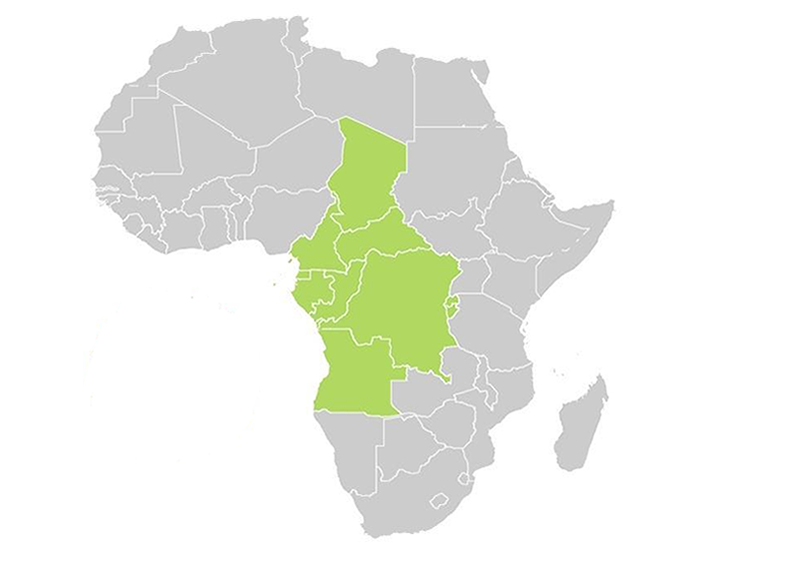
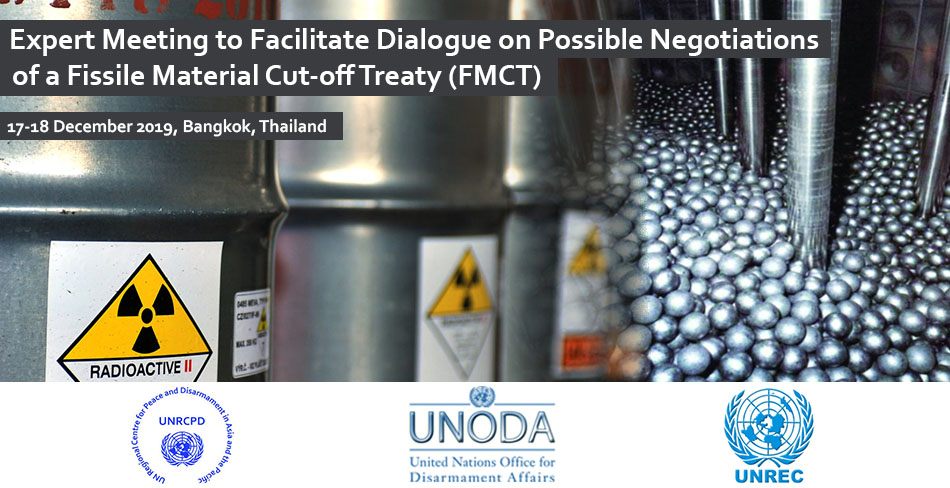
 From September 25 to 27, 2019, the Sub-Regional Legal Assistance Workshop for States Parties to the Kinshasa Convention on Small Arms and Light Weapons (SALW) was held at the Sipopo International Conference Center in Malabo, Republic of Equatorial Guinea.
From September 25 to 27, 2019, the Sub-Regional Legal Assistance Workshop for States Parties to the Kinshasa Convention on Small Arms and Light Weapons (SALW) was held at the Sipopo International Conference Center in Malabo, Republic of Equatorial Guinea.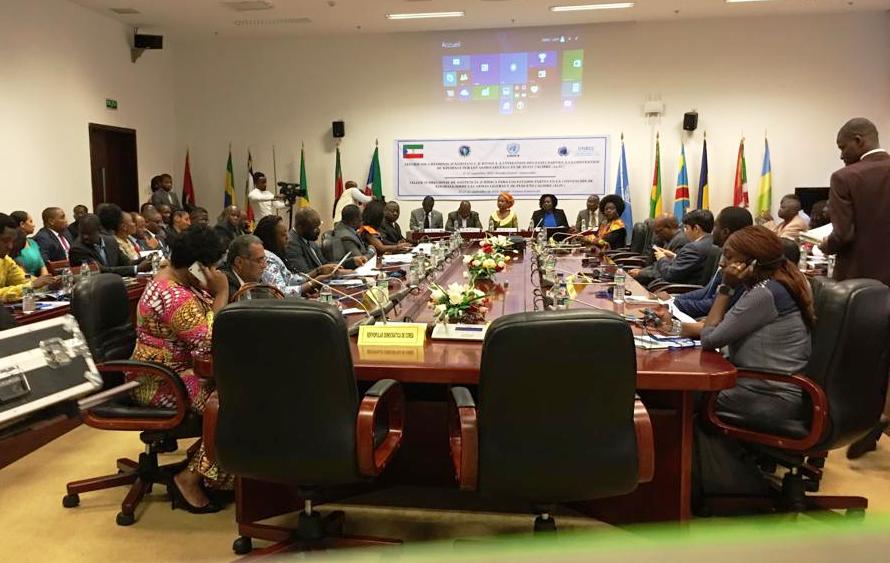 From 25th to 27th September 2019, at the Sipopo International Conference Center in Malabo, Republic of Equatorial Guinea, the United Nations Regional Center for Peace and Disarmament in Africa (UNREC) organized, in collaboration with the Economic Community of Central African States (ECCAS), the United Nations Regional Office for Central Africa (UNOCA), and the Government of the Republic of Equatorial Guinea, with the political support of the African Union, a Sub-Regional Legal Assistance Workshop for States Parties to the Kinshasa Convention on Small Arms and Light Weapons (SALW).
From 25th to 27th September 2019, at the Sipopo International Conference Center in Malabo, Republic of Equatorial Guinea, the United Nations Regional Center for Peace and Disarmament in Africa (UNREC) organized, in collaboration with the Economic Community of Central African States (ECCAS), the United Nations Regional Office for Central Africa (UNOCA), and the Government of the Republic of Equatorial Guinea, with the political support of the African Union, a Sub-Regional Legal Assistance Workshop for States Parties to the Kinshasa Convention on Small Arms and Light Weapons (SALW).
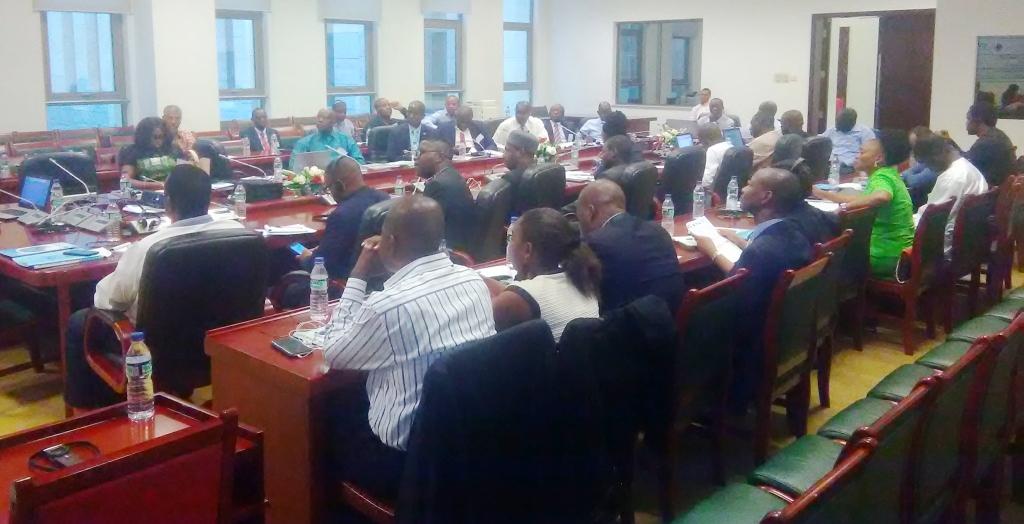
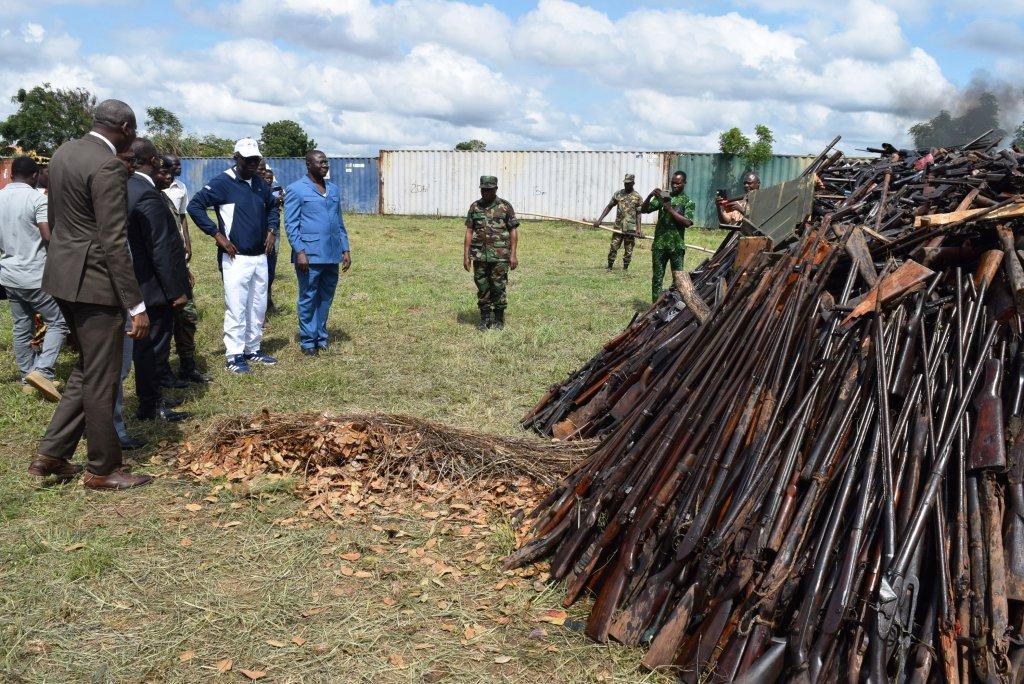 September 21, 2019- To mark the International Day of peace in Togo, the Government, through its National Commission on Small Arms and Light weapons with the technical assistance of the United Nations Regional Centre for peace and Disarmament in Africa (UNREC), proceeded to the destruction of 2,000 seized and obsoletes weapons and more than 10,000 ammunition.
September 21, 2019- To mark the International Day of peace in Togo, the Government, through its National Commission on Small Arms and Light weapons with the technical assistance of the United Nations Regional Centre for peace and Disarmament in Africa (UNREC), proceeded to the destruction of 2,000 seized and obsoletes weapons and more than 10,000 ammunition. The United Nations Regional Center for Peace and Disarmament in Africa (UNREC), the Economic Community of Central African States (ECCAS) and the United Nations Regional Office for Central Africa (UNOCA) will organize in collaboration with the Government of Equatorial Guinea, a Sub-Regional Legal Assistance Workshop for State Parties to the Central African Convention for the Control of Small Arms and Light Weapons, their Ammunition, Parts and Components that can be used for their Manufacture, Repair or Assembly”, also known as Kinshasa Convention, from 25 to 27 September 2019, in Malabo (Republic of Equatorial Guinea).
The United Nations Regional Center for Peace and Disarmament in Africa (UNREC), the Economic Community of Central African States (ECCAS) and the United Nations Regional Office for Central Africa (UNOCA) will organize in collaboration with the Government of Equatorial Guinea, a Sub-Regional Legal Assistance Workshop for State Parties to the Central African Convention for the Control of Small Arms and Light Weapons, their Ammunition, Parts and Components that can be used for their Manufacture, Repair or Assembly”, also known as Kinshasa Convention, from 25 to 27 September 2019, in Malabo (Republic of Equatorial Guinea). 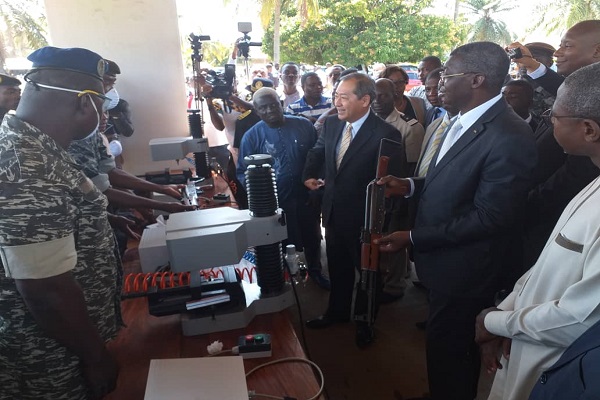 On 14 August 2019, UNREC Handed over two (02) Couth MC 2000 firearms marking machines to the Government of Togo trough the Togolese Minister for Security and Protection of Civilians in a formal ceremony attended by the Ambassador of Japan.
On 14 August 2019, UNREC Handed over two (02) Couth MC 2000 firearms marking machines to the Government of Togo trough the Togolese Minister for Security and Protection of Civilians in a formal ceremony attended by the Ambassador of Japan.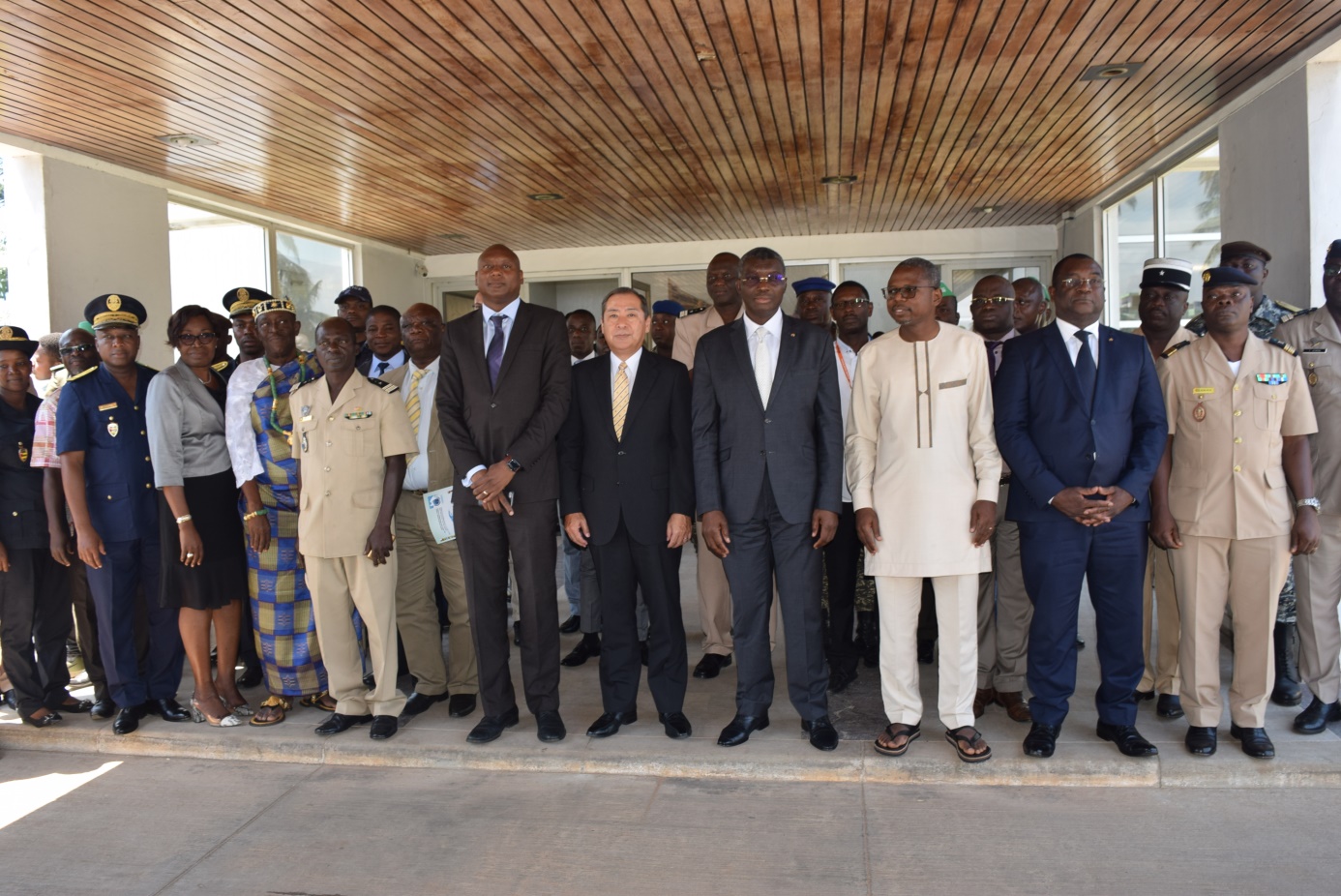
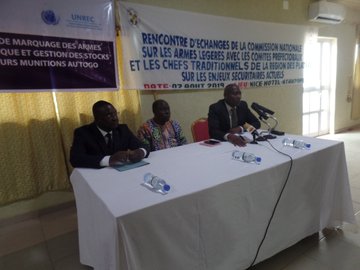
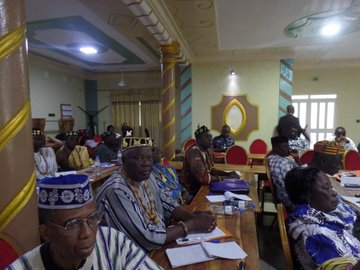
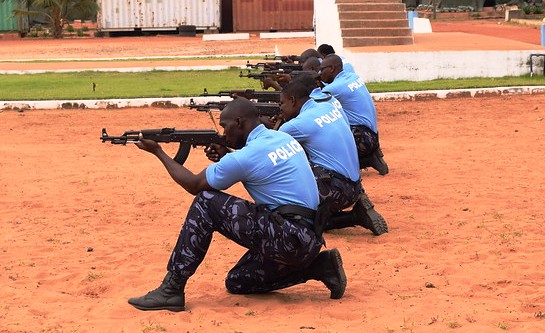 From 15 July to 9 August 2019 in Lomé, Togo, the United Nations Institute for Training and Research (UNITAR), the United Nations Regional Centre for Peace and Disarmament in Africa (UNREC), the Alioune Blodin Bèye Peacekeeping School in Bamako (EMP Bamako), and the Ministry of Security and Civil Protection of Togo, co-organized training of trainers (ToT) of the Togolese police and gendarmerie meat to prepare Formed Police Units(FPU) for deployment to United Nations peacekeeping missions including the United Nations Multidimensional Integrated Stabilization Mission in Mali (MINUSMA)
From 15 July to 9 August 2019 in Lomé, Togo, the United Nations Institute for Training and Research (UNITAR), the United Nations Regional Centre for Peace and Disarmament in Africa (UNREC), the Alioune Blodin Bèye Peacekeeping School in Bamako (EMP Bamako), and the Ministry of Security and Civil Protection of Togo, co-organized training of trainers (ToT) of the Togolese police and gendarmerie meat to prepare Formed Police Units(FPU) for deployment to United Nations peacekeeping missions including the United Nations Multidimensional Integrated Stabilization Mission in Mali (MINUSMA)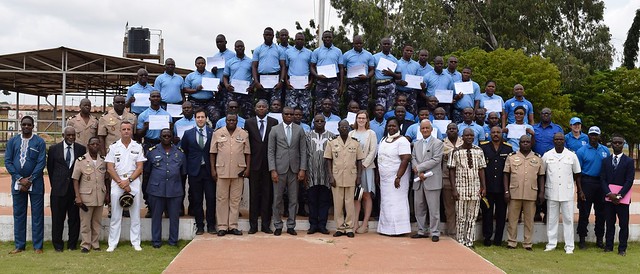
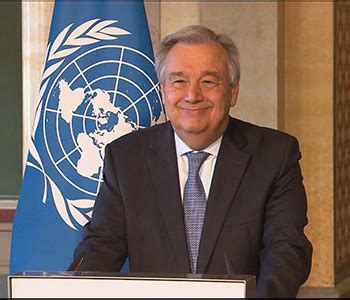 The present report provides an account of the activities of the United Nations Regional Centre for Peace and Disarmament in Africa from July 2018 to June 2019.
The present report provides an account of the activities of the United Nations Regional Centre for Peace and Disarmament in Africa from July 2018 to June 2019.